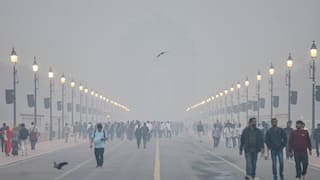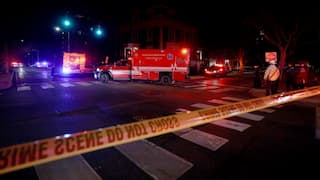AIIMS-WHO Studies Serological Prevalence Of SARS-CoV-2 Among Children Aged 2-17 Years | Interim Result Highlights
The midterm analysis of data of about 4,500 participants from these states reveal that 2,811 were found to be sero positive.

New Delhi: While the second wave of Coronavirus has recently started to low down its drastic impact, experts have already raised concerns regarding the probable third wave of the deadly disease in India where Children and young age group is predicted to get affected the most.
However, there is a lack of serological prevalence data in this age group. In order to help policymakers and the research community to be prepared for the probable third wave, AIIMS (Delhi) conducted a study to compare the COVID -19 sero-positivity rate between children and adults Methods/Materials.
ALSO READ | Serum Institute Plans To Start Clinical Trials Of Novavax Vaccine For Children In July: Report
The study, led by Principal Investigator of Research in Community Medicine, AIIMS, Dr. Puneet Mishra, was done in urban and rural areas of five cities - Delhi, Ballabgarh (Faridabad), Gorakhpur, Bhubaneshwar and Agartala, with a proposed total sample size of 10,000. The midterm analysis of data of about 4,500 participants from these states reveal that 2,811 were found to be sero positive. In other words, the study revealed that the the sero positivity rate is 62.3%.
Here are the major findings of the WHO-AIIMS Serological prevalence of SARS-CoV-2 antibody among children and young age (between age 2-17 years) group in India.
Serological Prevalence Study: Highlights
Delhi: In Delhi, study was conducted on 1001 people in the urban areas of Delhi, in which 92 were found to be sero-positive under the age of 18 years, that is, the sero-positivity rate in this age group is 73.9%. Similarly, 680 out of 909 who are above 18 years of age were found to be sero positive i.e. 74.8%. The resettlement colony in the urban area of South Delhi, which has a very congested population, reported the highest seroprevalence. In South Delhi, 73.9% seroprevalence was found in the 0-18 age group as compared to those above 18 years of age. It is to be noted that these areas of Delhi and NCR, especially Faridabad, may have more seroprevalence after the intense second wave. Presumably, these levels of seroprevalence may be protective against any 'third wave'.
Faridabad: The Faridabad rural area has a seroprevalence of 59.3% (nearly equal in both age groups), which can be considered higher as compared to previous national surveys. The study was done on 1099 people in Ballabhgarh rural area of Faridabad falling in Delhi NCR region, out of which 626 people were found to be sero positive. There were 189 under the age of 18, out of which 116 were found to be sero positive i.e. 61.4%. At the same time, 512 out of 870 who were above 18 years of age were sero positive i.e. 58.8%.
ALSO READ | Is Delhi Moving Towards ‘Herd Immunity’? Here's What Sero-Survey Suggests
Gorakhpur: Here, 448 people were included in the study from the rural areas out of this 394 were found to be sero positive, i.e. 87.9% sero positivity was found here. In age group, 87 out of 108 people below 18 years of age and 307 out of 340 people above 18 years were sero-positive. That is, the sero positivity rate was found to be 80.6% at the age of less than 18 years and 90.3% in the above.
Agartala: As many as 1001 people from the areas salivated in this study. Of these, 520 people came sero positive, that is, 51.9% is sero positivity. The region has the least seroprevalence probably because it also included some tribal populations, which generally have low mobility, resulting in lower chances of COVID19 infection. Of the 146 children below the age of 18, 45 came sero-positive. At the same time, out of 855 people above 18 years of age, 475 people have come sero positive.
Bhubaneshwar: The study was conducted on 1000 people in rural areas. Out of the total sample population, 526 i.e. 52.6% people were sero positive. At least 75 of the 165 below the age of 18 were sero-positive, where as 451 out of 835 above 18 years of age were sero-positives.
Check out below Health Tools-
Calculate Your Body Mass Index ( BMI )






































